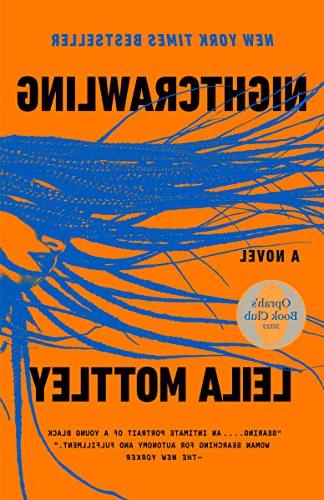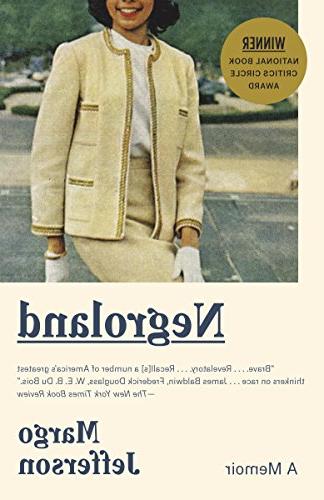-
-
-
![Michael Rosen]()
-
CIO Insights are written by Angeles' CIO Michael Rosen
Michael has more than 35 years experience as an institutional portfolio manager, investment strategist, trader and academic.
RSS: CIO Blog | All Media
Fireside Reading
Published: 03-30-2023
Six fiction and seven nonfiction books to recommend. Happy reading!
Fiction

Lessons in Chemistry, Bonnie Garmus
Elizabeth Zott is a talented chemistry student, pursuing a graduate degree in 1961 when she runs into the pervasive sexism of the era that prevents her from advancing in her degree and relegates her to a job well beneath her intelligence. By chance, she is asked to host a daytime cooking show, which she insists on doing as a chemistry class, to the chagrin of her TV producers. This novel is a perceptive critique of the sexism of the 1950s and 60s, a reminder of how much talent goes to waste in a world of prejudice and discrimination. But this is also a hilarious romp as the often oblivious Elizabeth Zott becomes a true hero. You will love this book.

Didn’t Nobody Give a Shit What Happened to Carlotta, James Hannaham
Dustin Chambers goes into prison for twenty years for a robbery he unwittingly joined, and returns to his (her) Brooklyn neighborhood as Carlotta, a transwoman. Her friends and family don’t recognize her at first, and her son wants nothing to do with his dad who is now a woman. Snapshots of Carlotta’s previous life and her struggles to rejoin a world she hardly recognizes are poignant commentary on how we treat the marginalized in our society, and a Black, transgender woman with a felony is about as marginalized as it gets. But Carlotta is brave, determined and hilarious, as is this novel. Don’t let the title fool you: you will care deeply about Carlotta.

Palmares, Gayl Jones
Almeyda is born a slave in late 17th century Brazil. She marries, her husband runs off to fight the Portuguese, and Almeyda escapes to a fugitive slave plantation called Palmares. From there, she travels across Brazil looking for her husband, guided by a mystic. The author shifts between languages, memories are recalled in fragments, mysterious characters appear and disappear. This is fantasy, this is poetry, this is genius.

Lessons, Ian McEwan
This is a thoughtful, even-paced novel that raises big philosophical questions through the life of very common man. Roland is sent to boarding school as a child, feeling abandoned by his parents. A piano teacher molests him and, seemingly, Roland enjoys this sexual relationship through his teenage years. Roland was not exactly complicit, he was only 14 at the time, but he was also a willing participant. Forty years later, the police approach him to help in building a case against the teacher, and Roland has to wrestle with helping them prove the sexual assault or facing his own feelings about the relationship. The second plot thread involves Roland’s German wife who disappears a few months after their son is born. Roland files a missing person report, but is content to let the police try to find her, or not. She eventually surfaces as a famous author, her ambition all along, and it raises the question of whether she would have been successful had she stayed with Roland and their son, or even if that should matter. Roland is an everyday man, with the usual disappointments in life and a passivity to all life’s events, but he is still sympathetic, and McEwan has crafted (another) beautiful novel that pulls on our emotions and challenges our beliefs.

Nightcrawling, Leila Mottley
Kiara is a 17-year old in East Oakland, trying to keep her life together under impossible circumstances. Her father died in jail, her mother is currently in jail, her older brother won’t get a job because he wants to be a rapper. Kiara takes in her neighbor’s nine-year boy when his mother abandons him, and Kiara desperately needs money, so she turns to prostitution. She becomes the favorite of some Oakland police, who pimp her out for their parties. The novel is inspired by a true story, but this is entirely an original work, remarkably, the debut novel by a 20-year author. Empathy is the key here, as we are both shocked by the constant struggles and sympathetic to Kiara’s determination to survive. If Leila Mottley can write like this at the age of 20, she has a very bright future.

Chilean Poet, Alejandro Zambra
Poetry is Chile’s national obsession, having produced two Nobel Laureates. Zambra uses poetry as the way to explain Chile’s collective character, not primarily as tragedy, although the references to the horrors of the Pinochet years are poignant, but more as comedy, as a group of young poets try to make their marks on the national conscience. This is told through the story of Gonzalo, an aspiring poet, his love for Carla, who prefers Argentine football players, and Carla’s son Vicente, who eventually also becomes an aspiring poet. Their relationships are really the heart of this beautiful story, wrapped in an obsession with poetry that gives this novel flair.
Nonfiction

If Nietzsche Were A Narwhal, Justin Gregg
What is intelligence? And what is its purpose? Gregg purposefully challenges our assumptions about the superiority of human intelligence. Most animals are satisfied with learned association, i.e., one action leads to another, but humans are uniquely obsessed with causal inference, why one action leads to another. This enables us to decode the genome, but it also often leads to ambition beyond our needs or understanding. By domesticating the natural world, for example, we are sowing the seeds of its (and our) destruction. How clever are we, really? Gregg gives the example of pigeons that were able to identify malignant tumors more accurately than radiologists. The pigeons clearly don’t understand X-rays or tumors, but their eyesight is so good that they can see things we can’t, in this case, “see” as in vision not “see” as in understanding, and does it matter if they are able to spot malignancies better than humans. With wit and wisdom, Gregg, an expert in dolphin communications, asks us to look at intelligence in a much broader way than we are used to. And you have to love the title.

The Rebel and the Kingdom, Bradley Hope
Adrian Hong is a Korean-American from Los Angeles who is moved by stories of the oppression in North Korea and dedicates his life to rescuing escapees. His remarkable story is told with frenetic pace. We are astonished by Adrian’s sacrifices, and outraged by the failure of the rest of the world, especially the US government, to do more to help these enslaved people. A true-life thriller.

Negroland, Margo Jefferson
This is Margo Jefferson’s memoir about growing up among the elite class of African-Americans in Chicago. She uses her personal stories as a window to the expectations and mores of this privileged class, but also beyond, to the broader society. For example, she distinguishes between privilege, which is what her family and circle of friends had and fought for, recognizing that ultimately this privilege could be withheld or withdrawn by the larger white society, and entitlement, which was an unalterable condition enjoy by whites. She captures the tension between how she was expected to behave, to achieve, a version of noblesse oblige, and the undeniable fragility of her, and her social group’s, standing in broader society. She ruminates on the great writers on race—Douglass, Du Bois, Baldwin and others—and her personal relationship with these writers. She asks. “How do you adapt your singular, willful self to so much history and myth?” A question for everyone of us.

The Story of Russia, Orlando Figes
Russia is a country that cannot be ignored, and Figes gives us an excellent primer on 1000 years of Russian history, both the facts and the myths. He puts Putin in historical context and, importantly, helps us understand how we should interact with a post-Putin Russia. This is a clear, but comprehensive history, and an excellent guide to understanding Russia.

Away From Chaos, Gilles Kepel
Kepel is perhaps the world’s leading scholar on Middle East history and politics. This book is a few years old, but it provides an excellent primer in understanding the dynamics of this complex region in fluid prose. An outstanding history of the region.

Berlin 1961, Frederick Kempe
Kempe makes the compelling case that the Berlin crisis of 1961 was the seminal moment in the Cold War, even more than the Cuban Missile Crisis, which he ties directly to the Berlin crisis the year before. Kempe provides exhaustive research on the day-by-day events that is as disturbing and thrilling as any action film. He raises the hypothetical of what Kennedy could have done, enticing us with the prospect that the history of Europe and the world might have developed very differently had the Americans pushed back against the Wall. A deeply-researched, riveting account of this critical historical moment in time and place.

The Song of the Cell, Siddhartha Mukherjee
“Every pathological disturbance, every therapeutic effect, finds its ultimate explanation only when it’s possible to designate the specific living cellular elements involved.” In other words, the cell is at the center of every disease and medical breakthrough. Mukherjee gives us a history of the cell, and a history of its discovery, and shows us how our understanding of cellular biology has transformed therapeutics. If this sounds dry and academic, be assured it is not. Mukherjee is a leading cancer physician and researcher, but he is also a beautiful writer (and a Pulitzer Prize winner in 2011 for Empire of All Maladies—highly recommended). Mukherjee combines the excitement of the medical advances that are certain to come with the humility that there is much we don’t understand. There is no better guide to medical research than Mukherjee.
Print this ArticleRelated Articles
-
![Book Wrap]() 31 Dec, 2018
31 Dec, 2018Book Wrap
Time for my semi-annual book perspective. I read a lot of books, but truthfully, most of them I move through pretty ...
-
![Negative Yields]() 19 Mar, 2015
19 Mar, 2015Negative Yields
One of the (many) perplexing phenomena facing investors is the persistent (and falling) low yields on government ...
-
![Not Deflation]() 26 Feb, 2015
26 Feb, 2015Not Deflation
The Consumer Price Index dropped 0.7% in January, bringing the year-over-year change to negative 0.1%. With the ...
-




